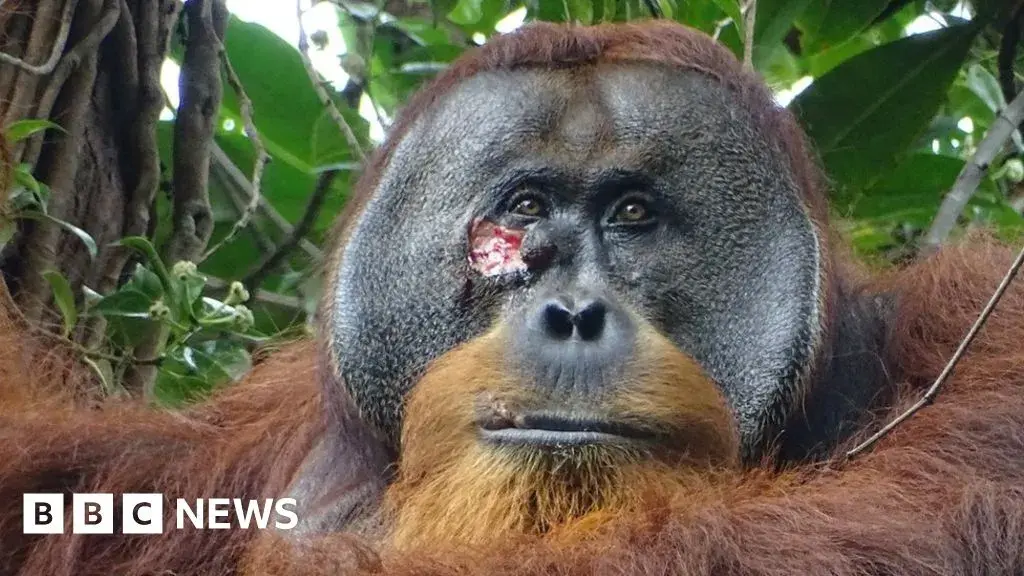It is the first time a creature in the wild has been recorded treating an injury with a medicinal plant.
After researchers saw Rakus applying the plant poultice to his face, the wound closed up and healed in a month.
Scientists say the behaviour could come from a common ancestor shared by humans and great apes.
“They are our closest relatives and this again points towards the similarities we share with them. We are more similar than we are different,” said biologist Dr Isabella Laumer at the Max Planck institute in Germany and lead author of the research.
My s.o. and I were discussing tests for animal intelligence being too anthropocentric, and we’ve both come to the conclusion (based on more recent work in the field that is getting better at trying to assess an animal’s intelligence on its own grounds, rather than our’s) that there’s going to be a major existential reckoning as this field progresses, because so many people do not realize the extent to which animals reason, think, and feel. If we ever reach the point of truly being able to understand what animals are thinking, we’re likely going to be horrified at what we’ve been doing to them (even more than many of us already are).
I’ve always thought the idea that consciousness just suddenly starts with us makes no sense. I can’t believe it exists within a vacuum.
Take the eye as analogy. Eagles might have the best eyes in one sense, but dragonflies have a panoramic view and see more colors.
There’s also convergent evolution happening all over the place. If consciousness is useful for us, it must be for other animals too. Same for intelligence and so on.
It could be inherited from a common ancestor.
Or it could just have likely evolved multiple times in different primate branches.
As we have absolutely no way to document how early it first happened in our own branch. To assume it is linked is just more attempts to try and indicate the human branch is special. Use of tools has been seen in many many branches. We don’t assume that came from a joint ancestor that crawled out of the water. Or before.
Zoos have known this for a long while, this study from London zoo went into it in 2006, and look at the sources going back into the 90’s.
It’s cool that this new study has come out, but this isn’t news really.




